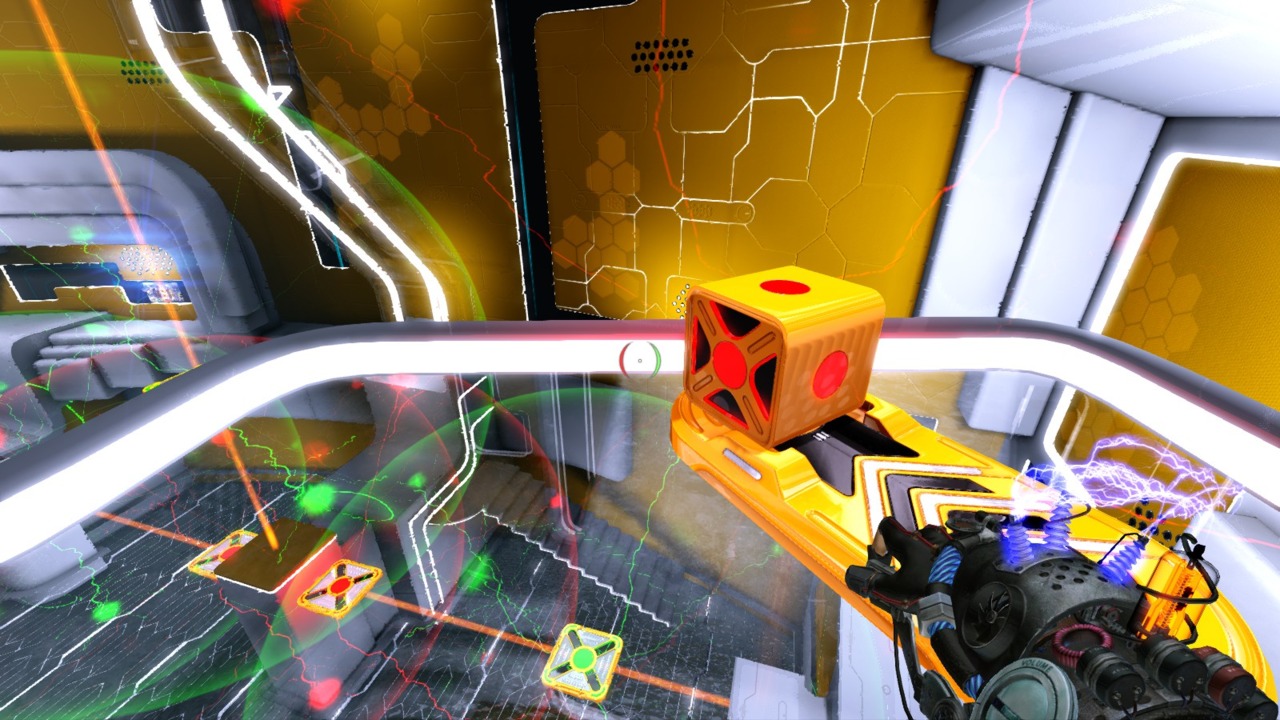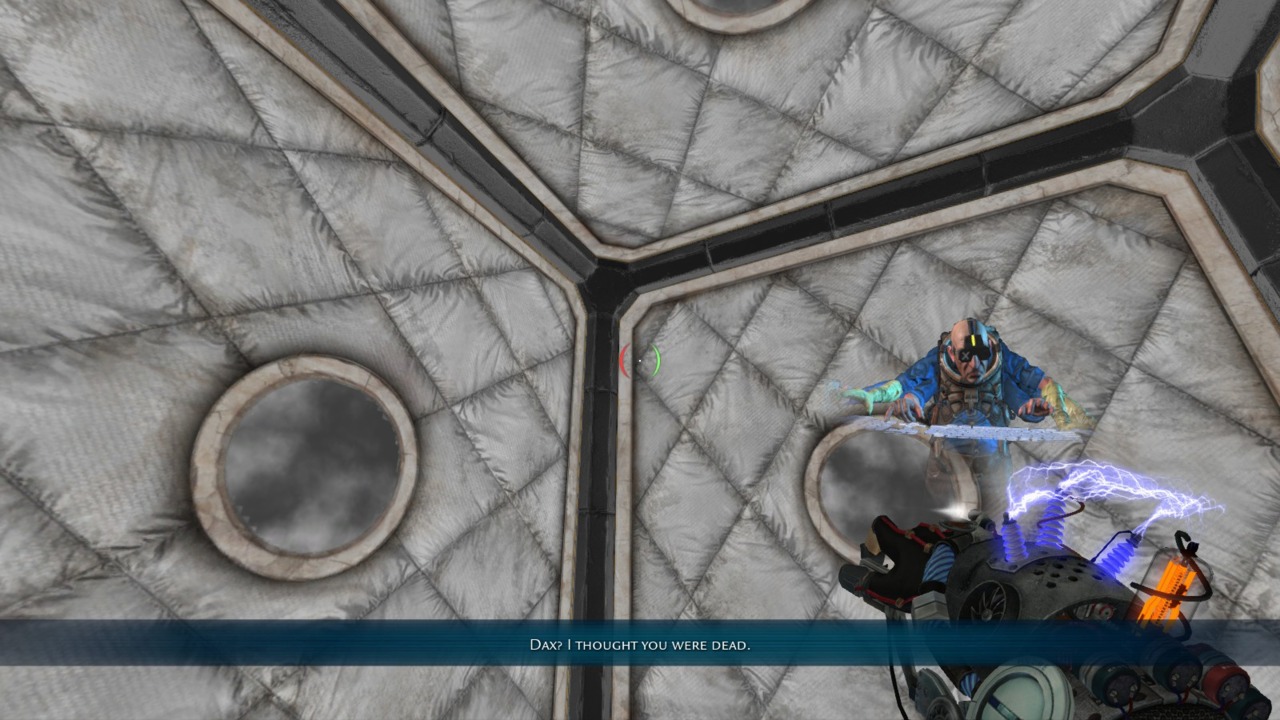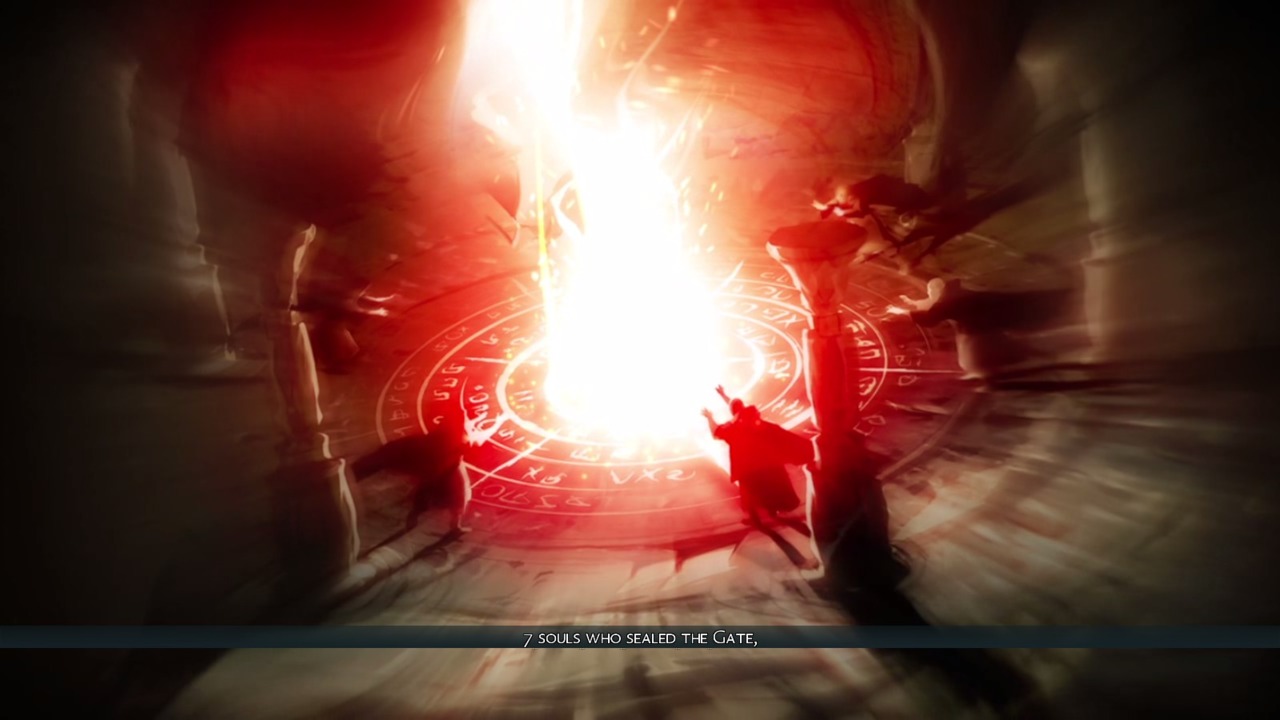The echoes of Portal reverberate so loudly throughout every moment of Magrunner: Dark Pulse that it's easy to find yourself listening for references to cake that never come. Whether it's in the haunting messages scrawled on walls, in the sci-fi nonlethal weapon with a mere two functions, or even in the elevators that shuttle you between almost every level, Magrunner doesn't concern itself with concealing its inspiration. It even has the slightly annoying overabundance of loading screens. But, oh, what an inspiration. At the risk of oversimplification, Magrunner is Portal with Cthulhu, and its tale of magnetism and descents into madness make it a trip worth taking.
Alas, it tends to take itself too seriously. You play as Dax Ward, a cocky youth who resembles Infamous' Cole MacGrath in both attitude and appearance (although you rarely get a glimpse of him), and progression hinges on guiding him through a series of tests designed to qualify him for space exploration. There's banter and occasionally snarky lines from his observers who pop up as holograms on his device (one of whom sports a name that's an obvious anagram of "Zuckerberg"), but in ultimately, weightier themes take over, and serve as a sobering reminder that the joys of playing Portal sprang as much from the witty narration of GLaDOS as from the gameplay.
In time, the influence of H.P. Lovecraft's favorite tentacle-bearded overlord begins to corrupt the shiny, garish surfaces of Dax's futuristic world, a move that in itself recalls the ruined Aperture facility of Portal 2. The move naturally allows Magrunner to gain a personality of its own, even though it ultimately amounts to few real differences since the puzzles Dax solves inexplicably continue to function despite the sudden appearance of oily ooze and forbidding iron portals. It's striking stuff, although it's clearly aimed at eliciting cries of "Awesome!" rather than Dead Space-style shivers of fear. Indeed, if anything, there's not quite enough of Cthulhu and his minions in Magrunner.
But when he does encounter them, you can't help but feel that poor old Dax would have been better off than Portal's Chell with a good old-fashioned projectile gun, but he's stuck with the device he brought along with him for his tests. This device is a power glove of sorts that shoots out opposite magnetic charges with clicks of the left and right mouse button. In direct opposition to actual magnetics, likely for the sake of immediate visual comprehension, Magrunner operates on the principle that opposites repel and likes attract. Accurate or not, the concept takes mere seconds to understand, and a brilliantly intuitive tutorial makes the transition even simpler.
Much of Magrunner's fun springs from discovering the possibilities inherent in this setup. To take a simple example, if you stack two of the many cubes scattered about (another Portal reference!), and then use your magtech gun to activate a red charge on the bottom one and a green charge on the top one, the top cube goes flying into the air. The resulting force propels you upward if you're standing on it or shatters glass obstacles if the cube is flying solo. Greater subtleties abound in the decision to give individual cubes their own magnetic fields of varying strengths (made visible by pressing the "F" button), adding far greater challenges than simply stacking two cubes on top of one another and hoping for the best.
But Magrunner isn't just about blocks; puzzle completion often depends on using yourself or (later) a lovable robotic dog named Newton as a trigger. There's no falling damage or crouching, and secondary elements such as catapults and moving platforms allow greater challenges as the game progresses. The puzzles themselves present their share of "Aha!" moments so familiar to Valve's own puzzler, although they're balanced with an equal number of snoozers. They're also fairly accessible, and in general, the challenges don't become worthy of the word "challenge" until the final third or so of the game. A pity, then, that that's when some of the limitations of the presentation start to reveal themselves, such as turrets that kill you with gunshots so silent that you may not even realize what hit you.
If you're hungry for an extra helping of Portal with a different topping, Magrunner should satisfy your appetite for a single 11-hour playthrough--certainly enough to justify its asking price of 20 bucks on Steam. Indeed, its magnetic themes work so well that you might walk away hoping that any third adventure of Chell's will feature some combination of Magrunner's magnetics and her own familiar portals. An ominous final scene isn't impressive enough to make up for the absence of a GLaDOS figure, but as a first-person puzzler, Magrunner: Dark Pulse manages to combine its myriad borrowed and original pieces into a satisfying whole.
'

